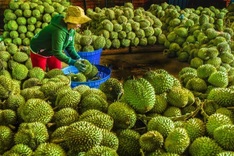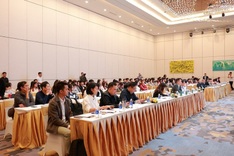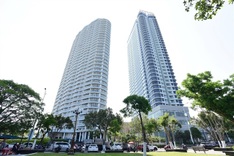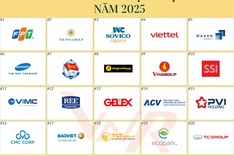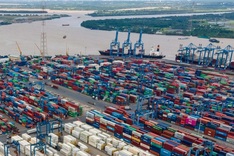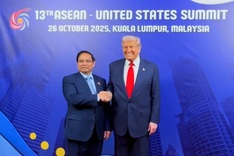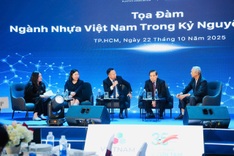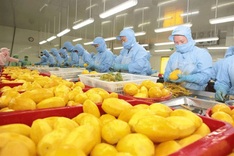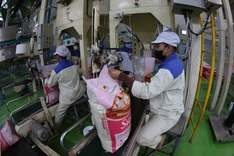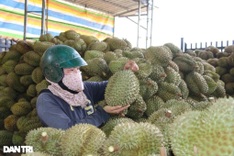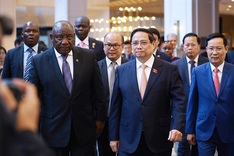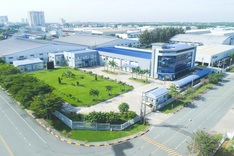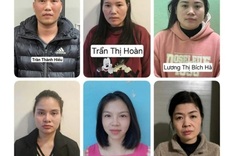>> Mekong firms apply cleaner production to protect environment
Worldwide Fund for Nature (WWF) is encouraging enterprises in Vietnam to apply cleaner production methods to develop sustainable business.
 |
| CP can help rattan exports |
As part of this effort, cleaner production (CP) has been widely promoted at the Asia Pacific Lifestyle Trade Fair, which took place from April 17-21 in Ho Chi Minh City, with the participation of around 700 companies.
Among the participants were two companies from Vietnam and two others from Laos, whose booths were set up in collaboration with WWF’s project “Sustainable Rattan Programme in Cambodia, Laos and Vietnam”. The project is co-funded by the European Union (EU), the international home-products retailer IKEA and the German Development Finance Institution (DEG).
To encourage the participation of companies towards sustainable development including cleaner production, during the fair, WWF, Vietcraft and One-UN Vietnam will hold a workshop entitled “Sustainable Production – Trend of 21st century” on April 21.
Ms. Sabine Gish Boie, WWF’s Rattan Programme Leader said, “In the city of Hue and the province of Quang Nam, the programme has helped figure out the rattan density on a land area of 6,000 hectares, of which 2,000 were under sustainable management.”
“Seven Vietnamese companies namely Au Co, Ngoc Dong, Vinh Long Ha Linh, Hiep Hoa, Duc Phong and Nam Phuoc have committed to applying for CP”, said Mr Le Xuan Thinh, Head of the Company Consultancy Unit for the Vietnam Cleaner Production Centre (VNCPC).
According to Mr Thinh, VNCPC has developed 8 new CP techniques which will be tested by cooperating rattan processors before introducing them to the companies.
In time to come, around 300 SMEs are expected to switch to CP business practices.
“A company in Nui Thanh District of Quang Nam may save from 30% to 50% of the cost of chemicals, and reduce 40% of its fuel cost.” Mr Thinh said. “WWF is providing and will continue to provide both technical and financial support so that companies can test and implement new CP technologies in their production chain.”
In addition to CP, the project also promotes sustainable forest management through FSC (Forest Stewardship Council ) certification. According to decrees recently issued in the Europe and USA – FLEGT and Lacey Act - only FSC certified timber items can enter the EU and US markets – two major importers of rattan products.


